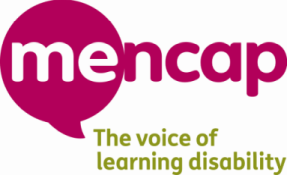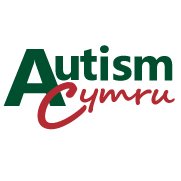Related Research Articles

The neurodiversity paradigm is a framework for understanding human brain function that recognizes the diversity within sensory processing, motor abilities, social comfort, cognition, and focus as neurobiological differences. This diversity falls on a spectrum of neurocognitive differences. The neurodiversity paradigm argues that diversity in neurocognition is part of humanity and that some neurodivergences generally classified as disorders, such as autism, are differences and disabilities that are not necessarily pathological. Neurotypical individuals are those who fall within the average range of functioning and thinking.
The following outline is provided as an overview of and topical guide to autism:
Developmental disability is a diverse group of chronic conditions, comprising mental or physical impairments that arise before adulthood. Developmental disabilities cause individuals living with them many difficulties in certain areas of life, especially in "language, mobility, learning, self-help, and independent living". Developmental disabilities can be detected early on and persist throughout an individual's lifespan. Developmental disability that affects all areas of a child's development is sometimes referred to as global developmental delay.

The Royal Mencap Society is a charity based in the United Kingdom that works with people with learning disabilities.
Sir William Norman Adsetts was a British businessman. He joined firm SIG plc in 1966 and ran as managing director from 1970 to 1996.

Norwood, known legally as Norwood-Ravenswood, is a United Kingdom charity established in 1785 in the East End of London. Its name comes from its long-running home for Jewish children, Norwood Hall, in the south London suburb of West Norwood which opened in 1863 and closed in 1961.

Societal and cultural aspects of autism or sociology of autism come into play with recognition of autism, approaches to its support services and therapies, and how autism affects the definition of personhood. The autistic community is divided primarily into two camps; the autism rights movement and the pathology paradigm. The pathology paradigm advocates for supporting research into therapies, treatments, and/or a cure to help minimize or remove autistic traits, seeing treatment as vital to help individuals with autism, while the neurodiversity movement believes autism should be seen as a different way of being and advocates against a cure and interventions that focus on normalization, seeing it as trying to exterminate autistic people and their individuality. Both are controversial in autism communities and advocacy which has led to significant infighting between these two camps. While the dominant paradigm is the pathology paradigm and is followed largely by autism research and scientific communities, the neurodiversity movement is highly popular among most autistic people, within autism advocacy, autism rights organizations, and related neurodiversity approaches have been rapidly growing and applied in the autism research field in the last few years.

Cornerstone, formerly known as Cornerstone Community Care, is a Scottish charity and social enterprise that provides care and support for people with learning disabilities, autism and complex care needs. It was founded in 1980 in Aberdeen and, since obtaining charitable status in 1981[1], Cornerstone has grown to become one of the largest charities in Scotland[2].
Brainkind is a UK charity founded in the 1980s in Burgess Hill, West Sussex, as The Disabled Housing Trust. Brainkind provides residential, day services, care, rehabilitation and support to meet the needs of people with acquired brain injury (ABI), traumatic brain injury (TBI) and neurological conditions. Brainkind also provides care and support to enable living in the community and support at home.
The Autistic Self Advocacy Network (ASAN) is an American 501(c)(3) nonprofit advocacy organization run by and for individuals on the autism spectrum. ASAN advocates for the inclusion of autistic people in decisions that affect them, including: legislation, depiction in the media, and disability services.
Autism Anglia is an organisation and registered charity that provides services to those affected by autism in Essex, Suffolk, Norfolk and Cambridge. It began life in 1973 when Anthony Boobier discovered there were no specialist autism services for his newly diagnosed son. Its first establishment opened in 1977 and it opened adult services in 1983 when the original children grew up and it was realised that there was no specialised adult autism provision for them. In 2008, The Essex Autistic Society took over the Norfolk Autistic Community Housing Association and the Norfolk Autistic Society and changed the name of the new charity to Autism Anglia to better reflect the enlarged area of operation. In 2013 Autism Anglia took over the Cambridge-based charity East Anglian Autistic Support Trust (EAST).

ARC Association for Real Change is a UK membership organisation, which supports providers of services to people with a learning disability.

Brandon Trust is a United Kingdom charitable organization working with and for people with learning disabilities. They focus on helping people with said disabilities to live life how they want to.
Shared Lives, which is also known as Adult Placement in some areas, is a UK form of support and accommodation for adults with need wherein approved individuals or families open their lives to aid older or disabled persons.

Autism Cymru was Wales' national charity for autism with offices in Cardiff, Wrexham, and Aberystwyth. The charity was established in May 2001 through an initial 3-year grant provided by The Shirley Foundation. The founder chair of the Trustees was Dame Stephanie Shirley of the Shirley Foundation.
Anna Kennedy is a disability/neurodiversity campaigner who has worked to provide improved education and other services and support for children and adults described as being on the autism spectrum as well as other neurodivergent conditions. In pursuing these activities she has helped establish two schools, a college, a respite home and a website with over 100,000 international followers.
Discrimination against autistic people involves any form of discrimination, persecution, or oppression against people who are autistic. Despite contention over its status as a disability, discrimination against autistic people is considered to be a form of ableism.

Dimensions UK is a British not-for-profit charitable registered society and housing association that supports people with learning disabilities, autism and complex needs.

The employment of autistic people is a social issue. People with autism have one of the lowest employment rates among workers with disabilities, with between 76% and 90% of autistic people being unemployed in Europe in 2014 and approximately 85% in the US in 2023. Similarly, in the United Kingdom 71% of autistic adults are unemployed. This is despite the fact, that "approximately 50% of people with autism spectrum disorder (ASD) have an IQ in the average to high range and do not have any additional physical needs." Young autistic adults are the most unemployed group when compared to people with learning disabilities, intellectual disabilities, or speech/language impairment.
References
- ↑ "About Us". autismplus.co.uk. Retrieved 21 November 2024.
- ↑ "Simon Weston". Simon Weston OBE. Archived from the original on 31 October 2010. Retrieved 21 February 2011.